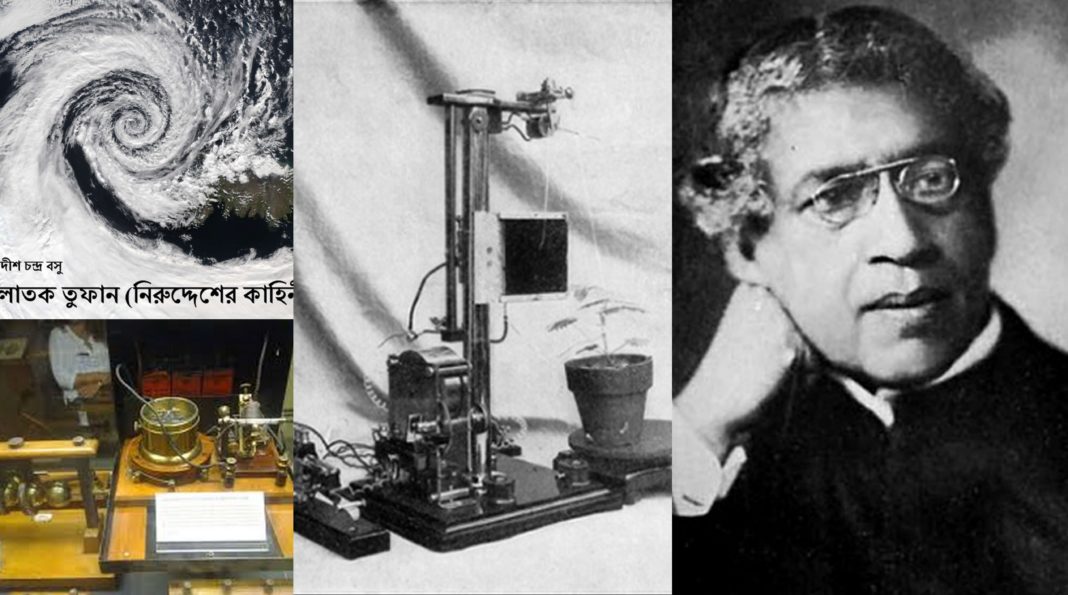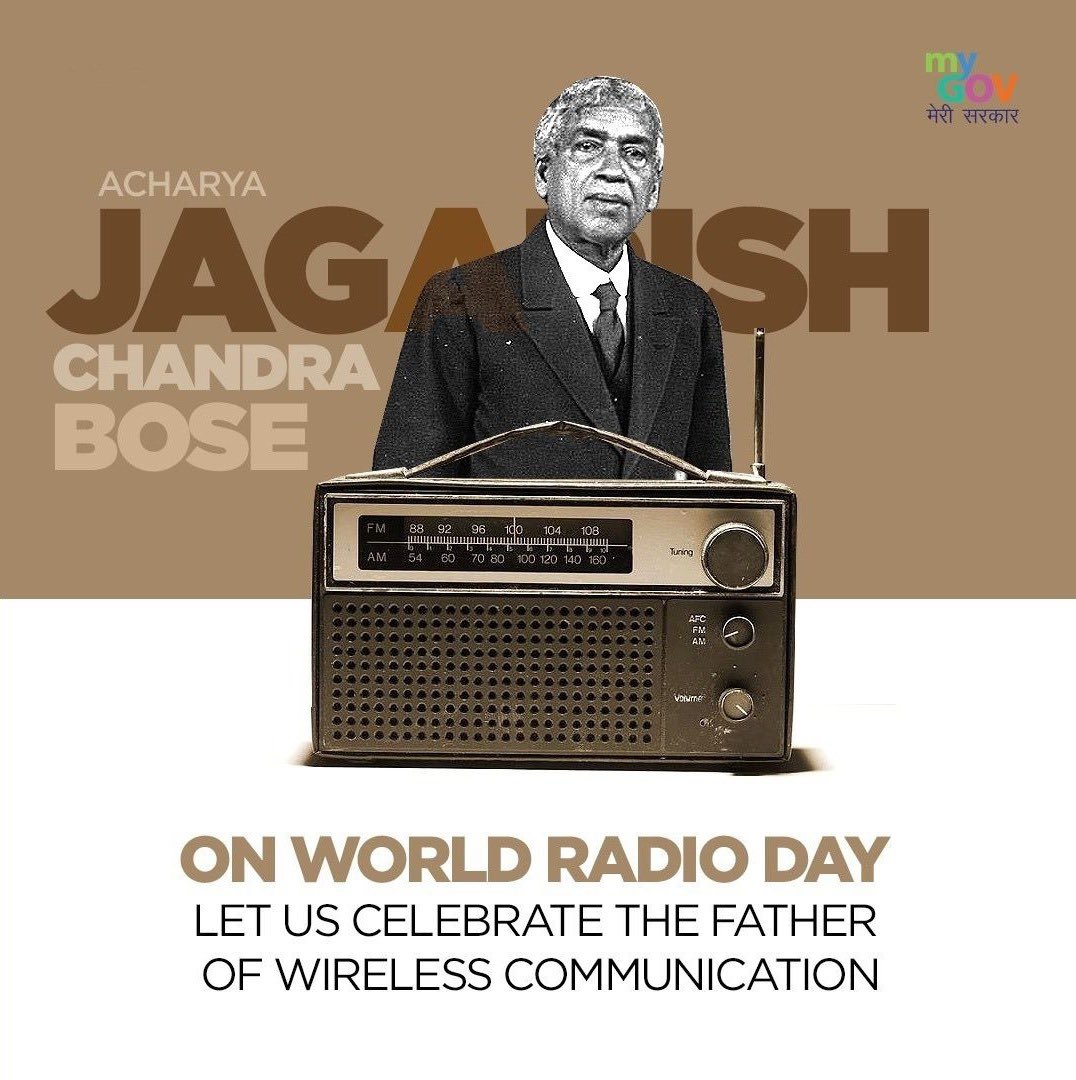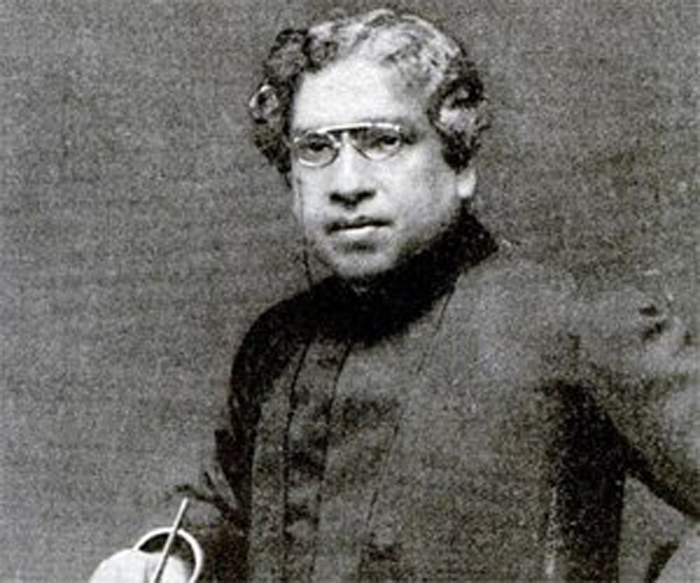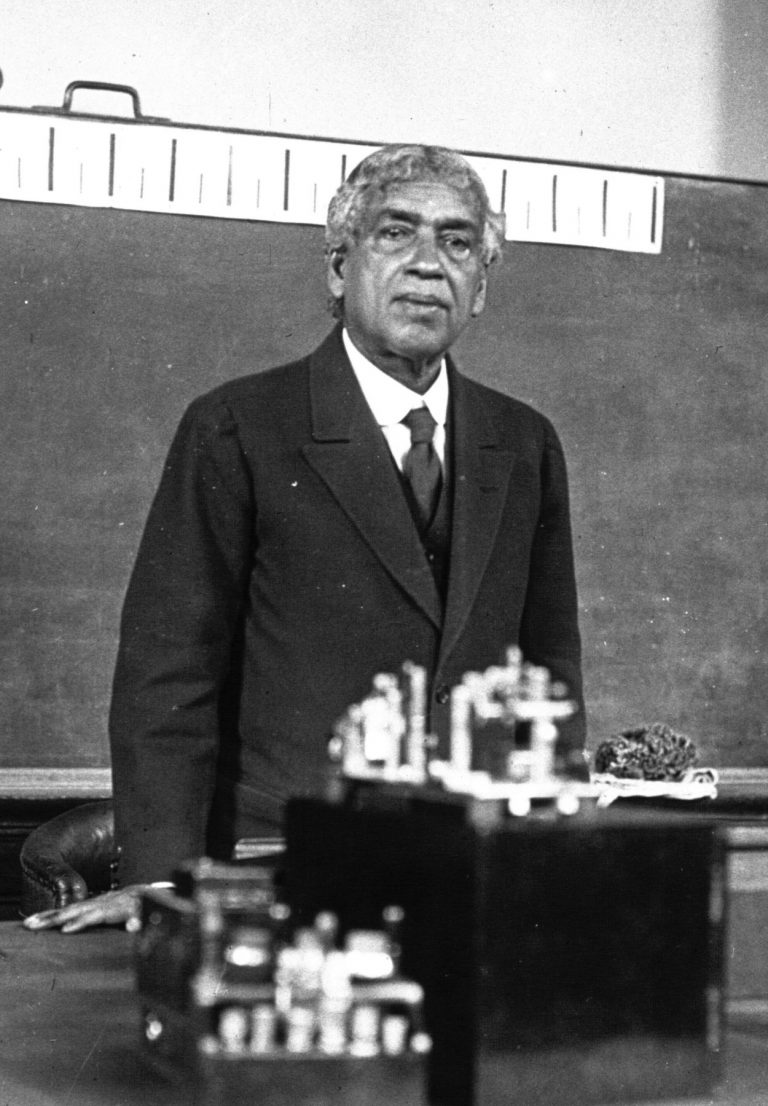
Jagadish Chandra Bose Extraordinary man of science Hindustan Times
Jagadish Chandra Bose In 1885, a 27-year old Jagadish Chandra Bose returned to his native India from England, where he had been studying natural science at Cambridge. Originally sent.

Remembering the renowned indian scientist jagadish chandra bose who pioneered the invention of
An individual or a team of up to three. Scope For contributions to wireless communications technologies with a global impact. Prize The award consists of a bronze medal, a certificate, and an honorarium. Basis for Judging

Jagdish Chandra Bose Great Indian scientist story of invention of radio and wave
1. In November 1895, Bose presented a public demonstration at Town Hall in Calcutta, where he sent an electromagnetic wave across 75 feet, passing through walls to remotely ring a bell and to explode some gunpowder. 2. Bose is known as the father of wireless telecommunication.

Jagadish Chandra Bose Father of Radio Science
Wireless communication means sending and receiving information and speech without any physical connection. The communication that began with pigeons ended with the telegraph in 1850. But the telegraph had a limited reach due to the wires. Several scientists around the world began researching radio waves, and wireless technology to break this limit.
Siliconeer PIONEERING SCIENTIST, PRINCIPLED MAN SIR JAGADISH CHANDRA BOSE (1858 1937
In November 1894, the Indian physicist, Jagadish Chandra Bose, demonstrated publicly the use of radio waves in Calcutta, but he was not interested in patenting his work. Bose ignited gunpowder and rang a bell at a distance using electromagnetic waves, confirming that communication signals can be sent without using wires. He sent and received.

Wireless Invention by J.C. Bose EPICPEDIA Unknown Facts of India Ep 11 EPIC Digital
Sir Jagadish Chandra Bose [1] CSI CIE FRS [2] [3] [4] ( / boʊs /; [5] IPA: [dʒɔɡodiʃ tʃɔndro boʃu]; 30 November 1858 - 23 November 1937) [6] was a polymath with interests in biology, physics, botany and writing science fiction. [7]

Jagdish Chandra Bose The father of WiFi? followinglove YouTube
Under the glare of a thousand suns-the pioneering works of Sir J.C. Bose. P. Bondyopadhyay. Physics. Proc. IEEE. 1998. The origin of solid-state diode detectors of wireless waves has been traced to Sir J.C. Bose's pioneering millimeter-wave propagation experiments with certain polarizing crystals during 1896-1898.….

MyGovIndia on Twitter "This WorldRadioDay, let’s celebrate Sir Jagadish Chandra Bose, the
Choose From a Wide Selection Of Informative and Comprehensive Books For You. Prime Members Can Enjoy Unlimited Free Shipping, Early Access To Lightning Deals and More.

Jagadish Chandra Bose The Father of Modern WiFi
Jagadish Chandra Bose was a physicist, biologist, botanist, archaeologist, early science fiction author, and a connoisseur of fine arts. He is best known for his development of highly.

Superfast 5G India’s Jagadish Chandra Bose is probably the reason behind it
He was a pioneer in the field of wireless telecommunication - a field which would eventually lead to invention of the radio, TV, wifi and even cell phones! Here are some interesting facts about one of India's greatest scientists. Advertisement Rural roots Bose was born in 1858 in rural Bengal.

Everything You Need To Know About Sir Jagadish Chandra Bose The Father Of Modern Wi
Born on 30 November 1858 in East Bengal, India (now Bangladesh), Jagadish Chandra Bose was a world-renowned physicist and biologist and a pioneer in radio communication and plant biophysics. Bose attended the University of Cambridge, earning his degree in 1884. He then returned to Calcutta, where he accepted a professorship at Presidency College.

Gems of YouTube Acharya Jagadish Chandra Bose The Doyen of Modern Indian Science IBG News
Jagadish completed his Tripos in Natural Sciences, Physics, Chemistry and Botany. He also obtained a degree from London University. Equipped with excellent recommendations he returned home after four years (1881-1885) to seek an interview with the Viceroy Lord Ripon who was very pleased to meet Jagadish.

From Ancient Times to the Modern 7 Indian Inventions You Use In Daily Life!
SOI Editor 16 August 2023 In a world where we rely heavily on wireless communication and want to understand the wonders of plant life, it is fascinating to explore the remarkable inventions of Jagdish Chandra Bose. A true genius ahead of his time, Bose revolutionized the fields of physics and biology, proving that science knows no boundaries.

Who is Jagadish Chandra Bose? 5 Things to know about Google Doodles on World's greatest scientists
They write new content and verify and edit content received from contributors. Sir Jagadish Chandra Bose (born November 30, 1858, Mymensingh, Bengal, India (now in Bangladesh)—died November 23, 1937, Giridih, Bihar) Indian plant physiologist and physicist whose invention of highly sensitive instruments for the detection of minute responses by.
Sir Jagadis Chandra Bose The man who (almost) invented the radio Untold lives blog
Jagadish Chandra Bose was a Bengali polymath who made significant contributions to the fields of physics, botany, and wireless communication. Despite his gro.

Remembering Sir Jagadish Chandra Bose Complete Journey of a Legend Par Excellence NYK Daily
By Jagadish Chandra Bose [Public domain], via Wikimedia Commons. Meanwhile, Marconi had less scruples. On 12 December 1901, Marconi used Bose's 1899 improved version of the coherer to receive the first transatlantic wireless signal.. Bose's legacy and his contributions to the invention of wireless telegraphy are still a contested issue.
